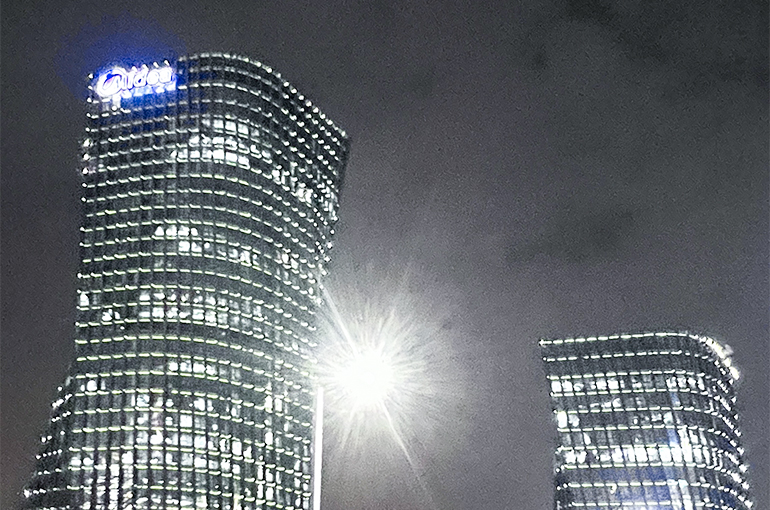 China’s DJI, Midea Cut Back on Long Working Hours, Put Focus on Staff Well-Being
China’s DJI, Midea Cut Back on Long Working Hours, Put Focus on Staff Well-Being(Yicai) March 12 -- Chinese drone maker DJI and home appliance giant Midea are encouraging employees not to work unnecessarily long hours in order to combat the practice of ‘pointless internal competition,’ such as holding endless meetings, and as they place more emphasis on employee welfare to boost efficiency amid stiffening competition.
Lights were beginning to dim at DJI’s Shenzhen headquarters around 9 p.m. on March 10, and employees were leaving the office building, a Yicai reporter noticed. And Midea’s HQ in Shunde was already dark by 6:40 p.m. when the reporter visited the next day.
Although DJI has not made a public statement saying why the firm is discouraging overtime, some of its employees said the new approach might be to lure more talent. And analysts said it may have to do with European Union regulations, as products made from forced labor are banned in the EU.
Some 80 percent of DJI’s revenue came from overseas in 2017. Although the company has not released this figure in recent years, in 2023, international sales soared 41.1 percent from the year before to CNY11.4 billion (USD1.5 billion), CNY7.7 billion of which was achieved in the first half, according to its financial report.
White goods maker Haier Group also said yesterday that it is opposed to formalistic overtime, which is a practice where companies expect employees to work extra hours, often for the sake of it rather than out of necessity.
Large companies taking a stance against unnecessary overtime will help attract talent, boost their image, improve efficiency and reduce employment risks, Zhang Hua, vice president of a small home appliance company in Shunde, told Yicai. His company has already discussed Midea’s move of having employees leave on time, and this approach may influence more small and medium-sized enterprises.
The growing trend of big tech companies opposing meaningless overtime reflects an increased focus on employee well-being as competition gets tougher, said Zheng Zhigang, professor at Renmin University’s School of Finance. As Chinese companies become more globalized, they are increasingly influenced by international industry policies, and are entering a period of strategic adjustment.
When building new quality productivity, companies realize that extending the working day does not improve efficiency, said Su Yong, professor at Fudan University’s School of Management. Instead, boosting technological capabilities and improving the working experience are key to enhancing competitiveness. Only by strengthening the scientific and technological content of products, and at the same time allowing employees to enjoy their work, is it possible to gain a competitive edge, he added.
In mature, market-oriented industries, competition is fierce and companies should focus on organizational management, investing resources in improving core competitiveness, and establishing effective performance evaluation systems to motivate employees and foster a healthy corporate culture, said Mu Sheng, founder of Leo Moo Management Consulting.
Editor: Kim Taylor